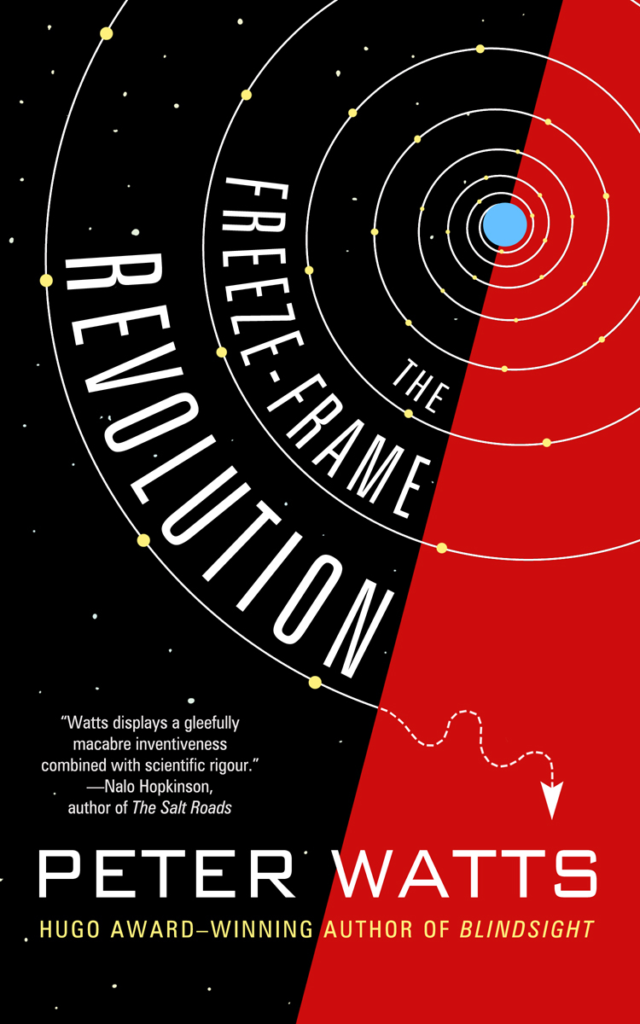I’m still a couple of months away from finishing the Suite for Turntables and Piano, and I never work on two pieces at the same time, but a specific subject and musical structure came to me a few weeks ago so it’s queued up.
There’s a novel by Peter Watts called The Freeze-Frame Revolution that centers around a variation on a “generation ship” where the crew lives in stasis for intervals of 10s and 100s of thousands of years (iirc) and are brought out for only a few months when maintenance or scientific research is needed (contrasting the “generations” of progeny in a standard generation ship). The story proper involves a complicated mutiny against the ship’s AI, but a throwaway quote from one of the crew stayed with me. When discussing their ultimate future with another member, the first confessed that he hoped to be alive for the heat death of the universe.

Ignoring the impossibility–if the matter and energy of the ship still exists, heat death has not been achieved–and the obvious flippant tone of the character’s statement, the concept of viewing a heat-dead universe is stirring. Concerning the music: after a theme is chosen, structure often comes to me next, and this quartet I imagine as manifesting in parallel form to the first. There are consisting of two contrasting movements:
- Quantum foam
- Heat death
While I was considering how, like the first quartet, this was going to just be a program piece of story but no deeper meaning, I realized that there may be a theme lurking in both. The “end of the universe” when viewed scientifically is dry and its importance to us as a species academic. Nothing will exist when heat death occurs. But it does bring to the surface an emphasis on the relative importance of events and time (which apparently heals all wounds). The events today and over the last few years are crushing in their gravity and their affect on our lives, and there is little to hope for that our catastrophic fate is not assured. In my first two orchestral pieces I tried to deal with that fate (first the pandemic and then our democratic collapse).
I realized further that my first quartet is just as obsessed with the humbling effect of generationally long time periods (a race of people expire but a new one replaces them, with an uncaring Earth as witness).
Although of course you end up becoming yourself.
David Foster Wallace